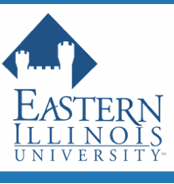Preferred Delivery
In-Person
Length of Presentation
50 minutes
Start Date
20-10-2023 11:00 AM
End Date
20-10-2023 11:50 AM
Document Type
Workshop
Abstract
The first few days of a new semester are anxiety-producing for all students. Our trans, nonbinary, and gender-nonconforming students come to our classes carrying all the standard student worries plus fears that they will be outed, misgendered, misnamed, excluded from examples, and/or unable to find convenient restrooms. So many of our normalized teaching practices, especially during introductory sessions, inadvertently exclude or objectify trans, nonbinary, and gender-nonconforming individuals or reinforce essentialized and binary gender norms. Sometimes, even those practices that we intend to be welcoming are not. In this workshop, we provide tips and strategies for making our courses, from the syllabi to the discussion, more welcoming and comfortable for our trans, nonbinary, and gender nonconforming students.
Description
Target audience: anyone teaching preK-16, with particular focus on college/university teaching.
Learning objectives: participants will come away from this workshop with
a) increased understanding of the incredible diversity of the trans/nonbinary/gender nonconforming (trans/GNC) communities;
b) strategies for editing the syllabus and course policies and procedures to be more welcoming to trans/GNC students;
c) strategies for first-day practices that will overtly signal welcome to and support for trans/GNC students;
d) helpful hints for making lectures/discussion prompts more inclusive and respectful of the trans/GNC communities; and
e) strategies for handling in-class situations that exclude, objectify, or other members of the trans/GNC communities.
Relevance to MEI: Making Excellence Inclusive, by definition, requires us to be attentive to all aspects of our students’ lives and identities—to see the student as a whole person and to design and teach our courses in ways that honor the whole student. Gender diversity is, currently, a topic of national (international) discussion, as states like Indiana make laws and policies to restrict trans/GNC individuals’ rights, access to health care, and representations in classrooms. However, even those of us who speak out against that discrimination have been raised in a cultural context that assumes that gender is both binary and “natural.” This means that, sometimes, even actions we take to be inclusive and respectful end up renormalizing binary gender. When we do so, we inadvertently make our classes less inclusive and erect barriers to trans/GNC students’ aspirations for excellence.
Creative Commons License

This work is licensed under a Creative Commons Attribution-Noncommercial-No Derivative Works 4.0 License.
Transpositive Learning: Creating a Positive Environment for Trans/GNC Learners
The first few days of a new semester are anxiety-producing for all students. Our trans, nonbinary, and gender-nonconforming students come to our classes carrying all the standard student worries plus fears that they will be outed, misgendered, misnamed, excluded from examples, and/or unable to find convenient restrooms. So many of our normalized teaching practices, especially during introductory sessions, inadvertently exclude or objectify trans, nonbinary, and gender-nonconforming individuals or reinforce essentialized and binary gender norms. Sometimes, even those practices that we intend to be welcoming are not. In this workshop, we provide tips and strategies for making our courses, from the syllabi to the discussion, more welcoming and comfortable for our trans, nonbinary, and gender nonconforming students.


Speaker Information
Shelley Berry (they/them/y’all) is Associate Professor of Journalism and affiliate faculty of the Women’s, Gender, and Sexuality Studies program at EIU. Shelley’s research interests include media literacy, unionism, media ethics, freedom of expression, digital media, and the coverage of gender non-conforming populations in popular media. They are a proud union member of EIU-UPI. They also serve on the advisory board of EIU’s Gender and Sexual Diversity Center.
Jeannie Ludlow (she/her) is Professor of English and director of Women’s, Gender, and Sexuality Studies at EIU, where she also teaches for the minors in Health Humanities and Latinx Studies. Her research focuses on reproductive justice in contemporary literature, culture, and politics, embodied discourse, and comics and graphic text studies. Jeannie is a member of EIU-UPI, EIU’s academic union, and serves on the advisory board of EIU’s Gender and Sexual Diversity Center.